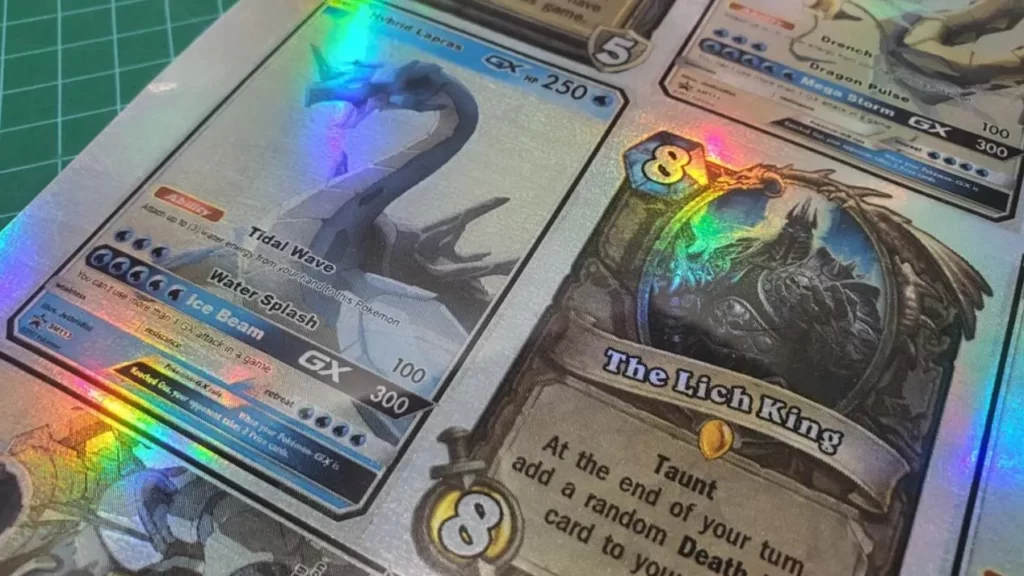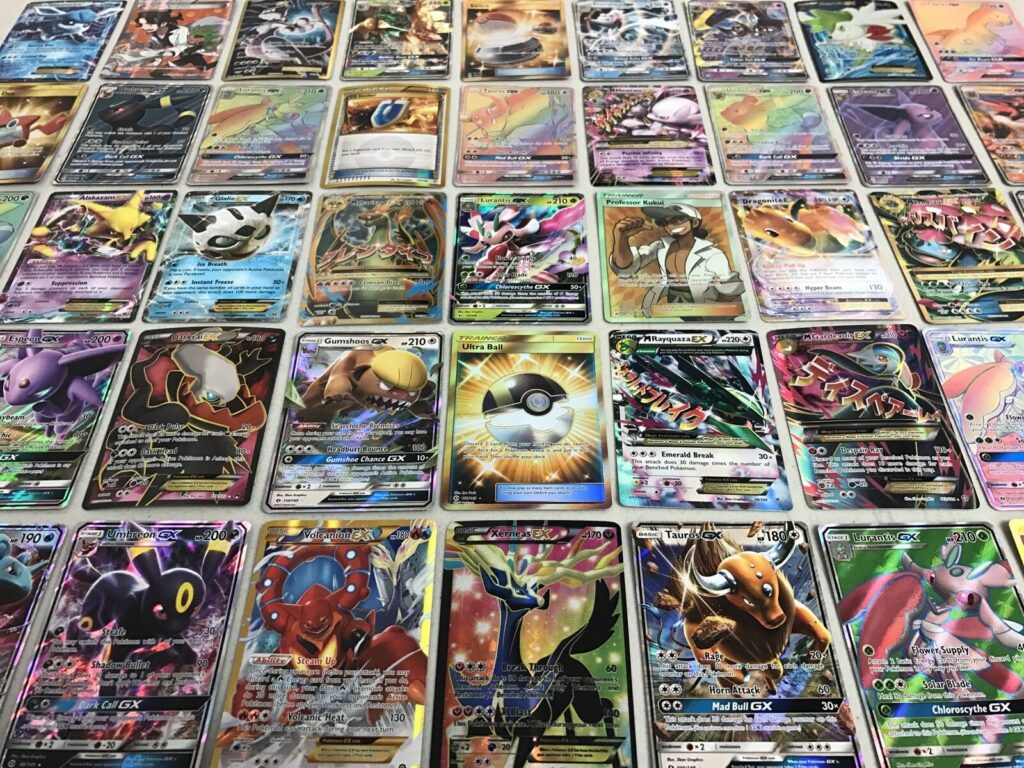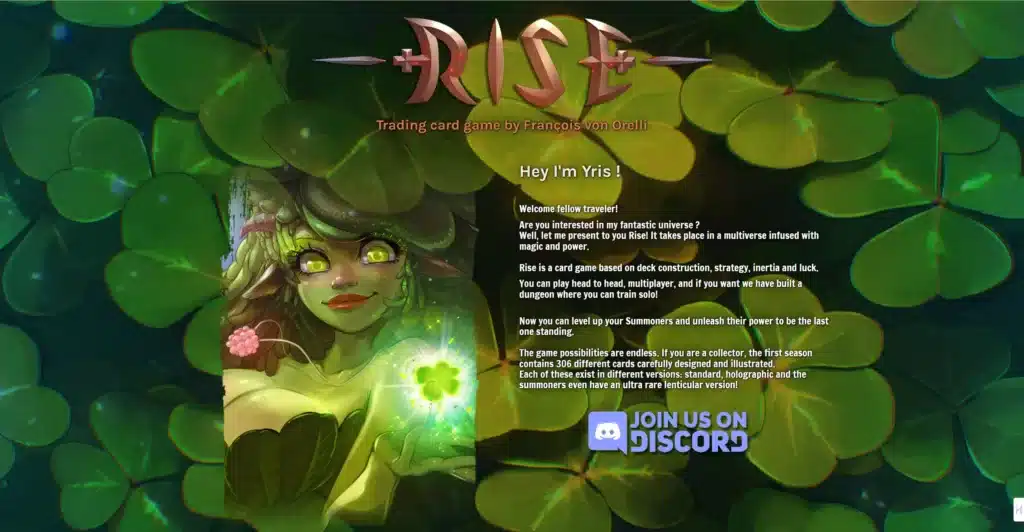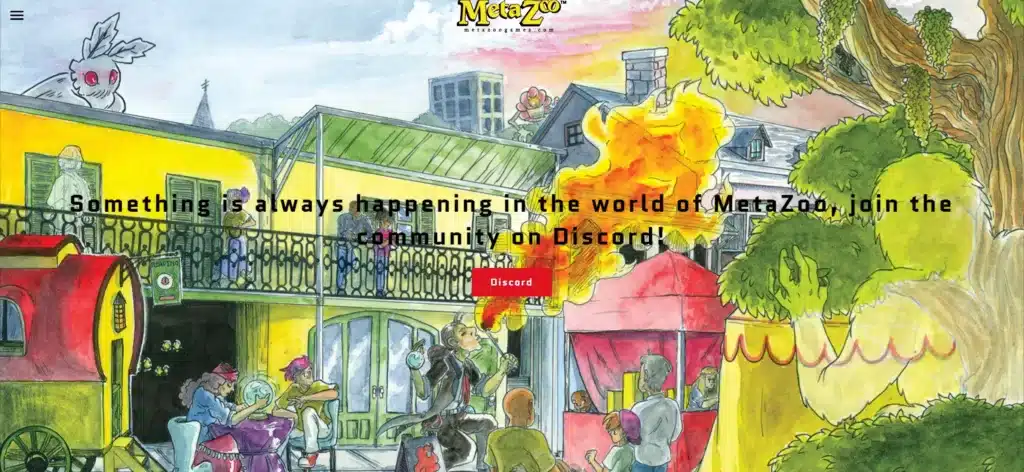Introduction

Trading Card Games (TCG) and Collectible Card Games (CCG) have become pillars of gaming, attracting enthusiasts from all walks of life. These games are a form of entertainment, a hobby, and a passion for many. In this article, we aim to dissect the differences between TCG and CCG, shedding light on each game type’s unique aspects and addressing common questions among players.
Table of Contents
- Introduction
- TCG (Trading Card Games) Introduction
- CCG (Collectible Card Games) Introduction
- The Main Differences Between TCG and CCG
- New TCG Brands
- How to Choose the Right Game Type for You
- What is Custom TCG (Trading Card Games)
- FAQ
- Conclusion
TCG (Trading Card Games) Introduction

What is TCG?
Trading Card Games, or TCGs, are cards where each player uses a deck of specialized cards to compete against one another. The player often builds and customizes these decks, allowing for a diverse range of strategies and play styles.
History and Development
The history of TCGs dates back several decades, with “Magic: The Gathering” being one of the pioneering games in the genre, released in 1993. This game set the foundation for many following TCGs, introducing the concept of a collectible card game where players could build their decks.
Main Features and Gameplay
The critical characteristic of TCGs is the deck-building aspect, where players collect cards and strategically compile their decks. Gameplay typically involves a combination of strategy, chance, and skill, with players battling against each other using their decks. The collectible nature of the cards, some of which are rare and highly valued, adds a significant aspect of trading to these games.
CCG (Collectible Card Games) Introduction

What is CCG?
Collectible Card Games, or CCGs, are similar to TCGs in that they involve deck building and strategy. However, they typically emphasize the collection aspect of the cards, which often come in randomized packs.
History and Development
CCGs took the world by storm with titles like the “Pokémon Trading Card Game,” which expanded the concept of card collecting with an added gameplay element. These games often tie into existing franchises, enhancing their appeal through familiar characters and worlds.
Main Features and Gameplay
The hallmark of CCGs is the collectible aspect. Players acquire cards through purchases, trades, or as part of the gameplay. These cards vary in rarity and power, impacting the game’s strategy. The gameplay usually involves players using their collections to build decks and engage in matches with other players, where design, skill, and sometimes luck play significant roles.
The Main Differences Between TCG and CCG
Card Distribution and Collection

One of the primary differences lies in how the cards are distributed and collected. In TCGs, players often purchase individual cards or specific sets to build their decks, while CCGs typically involve buying randomized packs of cards, where the contents are unknown until opened.
Gameplay and Rules
While both TCGs and CCGs involve deck building and strategy, the rules and gameplay mechanics can vary significantly. TCGs often offer a more complex and varied gameplay, requiring deeper strategic thinking. While also strategic, CCGs tend to focus more on collecting and can be more accessible to new players.
Market and Economic Impact
The market for TCGs and CCGs is vast, but the economic aspects differ. TCGs can have a higher entry cost due to the need for specific cards. With their randomized packs, CCGs create a different kind of market dynamic, often driven by the rarity and popularity of certain cards. Both are significant in the secondary market, where rare cards fetch high prices.
New TCG Brands
Sorcery TCG

Sorcery TCG, developed by Erik’s Curiosa Limited in Auckland, New Zealand, represents a unique blend of traditional art and modern gaming. Initiated in 2017 with its first batch of artwork delivered in 2018, the game features over 400 unique cards, each crafted using traditional mediums like acrylic, oil, pen and pencil, and watercolor. The creative minds behind Sorcery TCG are Erik Olofsson, the Creative Director at Grinding Gear Games known for “Path of Exile,” and Nickolas Reynolds. A notable aspect of Sorcery TCG is its collaboration with 35 artists experienced in RPGs, card games, and metal album covers, each retaining the rights to their artwork.
Highlights
- Traditional art mediums are used for card design.
- Over 400 unique cards at launch.
- Collaboration with experienced artists who retain their artwork rights.
Player Feedback
Players have praised the game for its artistic creativity and the tangible passion evident in each card. However, some have noted the challenges in accessibility and understanding the game’s intricate mechanics.
Rise TCG

Rise TCG, created by François Von Orelli, is an ambitious independent card game striving to compete with giants like MagicTG, Pokemon, and Yu-Gi-Oh. Despite being a standalone card game, Rise TCG has garnered a solid following, evidenced by its 1,000-member Discord community and successful Kickstarter campaign, achieving funding in just 30 seconds with over 600 backers. The game features an initial set of 308 cards and themed mini-sets for occasions like Christmas and Valentine’s Day. Rise TCG offers cards in standard, holographic, and scarce lenticular versions.
Highlights
- Quick funding on Kickstarter with a robust community.
- A diverse initial set of 308 cards.
- Special themed mini-sets and rare card versions.
Player Feedback
Rise TCG has been applauded for its ambitious vision and community engagement. However, some players express concerns about the game’s long-term sustainability and market competition against established TCGs.
Meta Zoo TCG

Meta Zoo TCG, launched by MetaZoo Games LLC during the COVID-19 pandemic through a successful Kickstarter campaign, is a tabletop collectible card game centered around cryptids, folklore, and supernatural phenomena. The game, featuring creatures like Bigfoot, Mothman, and Chupacabra, is distinguished by its ‘fourth wall’ mechanics, where real-life factors, such as the player’s location, can influence gameplay. In 2021, Steve Aoki became a full equity partner and designated co-founder, with Shaw Mead appointed COO. The game’s rapid growth was propelled by high demand for cards and items on secondary markets, making it one of the top 10 submitted items for grading at Professional Sports Authenticator (PSA) within two months.
Highlights
- Unique ‘fourth wall’ gameplay mechanics.
- Strong Kickstarter support and rapid growth in 2020 and 2021.
- High demand in secondary markets.
Player Feedback
Meta Zoo’s innovative approach to gameplay and lore has been a hit with players, but some have raised issues about the game’s complexity and the learning curve for new players. The involvement of celebrities and industry veterans has also brought both attention and scrutiny.
How to Choose the Right Game Type for You
Consider your interests and investment willingness when deciding whether to dive into TCGs, CCGs, or LCGs (Living Card Games).
Personal Interests
If you enjoy deep strategic planning and building specific decks, TCGs might be your go-to. CCGs offer that excitement for those who love the thrill of collecting and the randomness of pack openings. LCGs are a middle ground, offering regular expansions and a more controlled collection process.
Investment and Entry Level
TCGs often require a higher initial investment, especially if aiming to compete at a higher level. CCGs can be more budget-friendly initially, but collecting rare cards can become costly. LCGs typically have a steady cost with their regular expansions.
Beginner-Friendly Tips
For newcomers, starting with CCGs or LCGs might be worth it, as they can offer a more straightforward entry point into card games. Joining online communities and watching tutorial videos can also be immensely helpful.
What is Custom TCG (Trading Card Games)

Custom TCGs offer a unique spin on the traditional card gaming experience. They allow players to design and play with cards they’ve created, leading to a highly personalized gaming experience.
Concept and Differences from Standard TCGs
Unlike standard TCGs, where the game’s designers create cards, custom TCGs empower players to design their cards, often following specific guidelines. This customization can range from creating new abilities to designing the artwork.
Advantages of Custom TCGs
The most significant advantage of custom TCGs is the level of personalization. Players can express creativity, build decks that reflect personal themes or strategies, and often engage more deeply with the game’s community. Additionally, custom TCGs can be more adaptive, evolving with the ideas and contributions of their player base.
Position in the Player Community and Market
Custom TCGs hold a niche but growing position in the card game market. They appeal to players who seek a more hands-on and creative approach to gaming. Though they might not have the widespread popularity of traditional TCGs or CCGs, they foster a dedicated and creative community.
Frequently Asked Questions (FAQ)
Which type is more suitable for beginners?
CCGs are often recommended for beginners due to their more straightforward entry point and the excitement of collecting. LCGs are also suitable for a more consistent and manageable collection process.
How can I identify the authenticity and value of cards?
Authenticity can often be verified through official holograms, card quality, and printing details. The value of a card is determined by its rarity, demand, and condition. Online databases and forums can be helpful resources for valuation.
Comprehensive List of Card Game Terms Explained
- Booster Pack: A sealed package of random cards typically used in CCGs.
- Meta Game: The prevailing trends and strategies in the game’s competitive scene.
- Deck Building: Creating a card deck from a player’s collection.
- Angry: A strategy focused on aggressive attacks.
- Control: A strategy aimed at controlling the opponent’s moves and pace of the game.
- Mana: A standard resource system used in many games for playing cards.
- Mulligan: The act of redrawing your initial hand if unsatisfactory.
- Archetype: A prevalent deck type or strategy in the game.
- Banlist: A list of cards prohibited or limited in official play.
- Side Deck: Players can swap additional cards with their main deck between games.
- Meta Deck: A deck built to thrive in the current metagame.
- Limited Format: A game mode where players build a deck from a little pool of cards.
- Constructed Format: Players build decks from their entire collection.
- Draft: A format where players pick cards from a shared pool to build decks.
- Cube Draft: A draft format using a curated set of cards.
- Mill: A strategy to force the opponent to deplete their deck.
- OTK/FTK (One Turn Kill/First Turn Kill): Winning the game in one turn.
- Playmat: A surface used to play card games, often with designated areas.
- Sleeves: Protective coverings for cards.
- Tier: A ranking system for decks based on competitiveness.
- Proxy: An unofficial card representing an actual card in casual play.
Conclusion
The world of card games, with its vast array of TCGs, CCGs, and LCGs, offers something for every type of player, from strategic minds and collectors to creative deck builders. Whether you’re drawn to the strategic depth and personal deck-building of TCGs, the excitement of collecting and randomness in CCGs, or the consistent expansions and manageable collections of LCGs, there’s a game out there that’s perfect for you.
Remember, the key to enjoying these games is to find the one that aligns with your interests and play style. Feel free to start with something beginner-friendly and explore from there. The card game community is vast and welcoming, with countless resources to help you on your journey.
So shuffle up, draw your hand, and dive into the captivating world of card games. Whether building the ultimate deck, cracking open a fresh booster pack, or designing your unique cards, the adventure is just beginning. Happy gaming!
